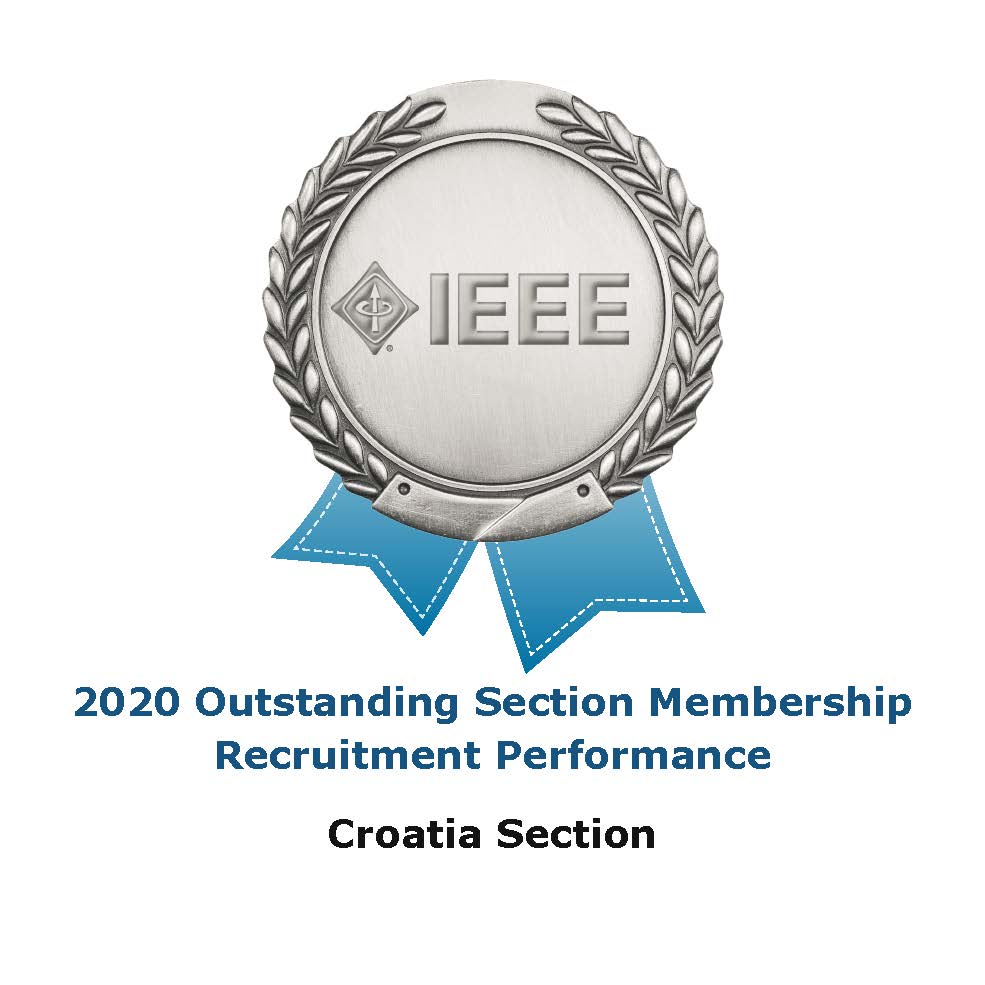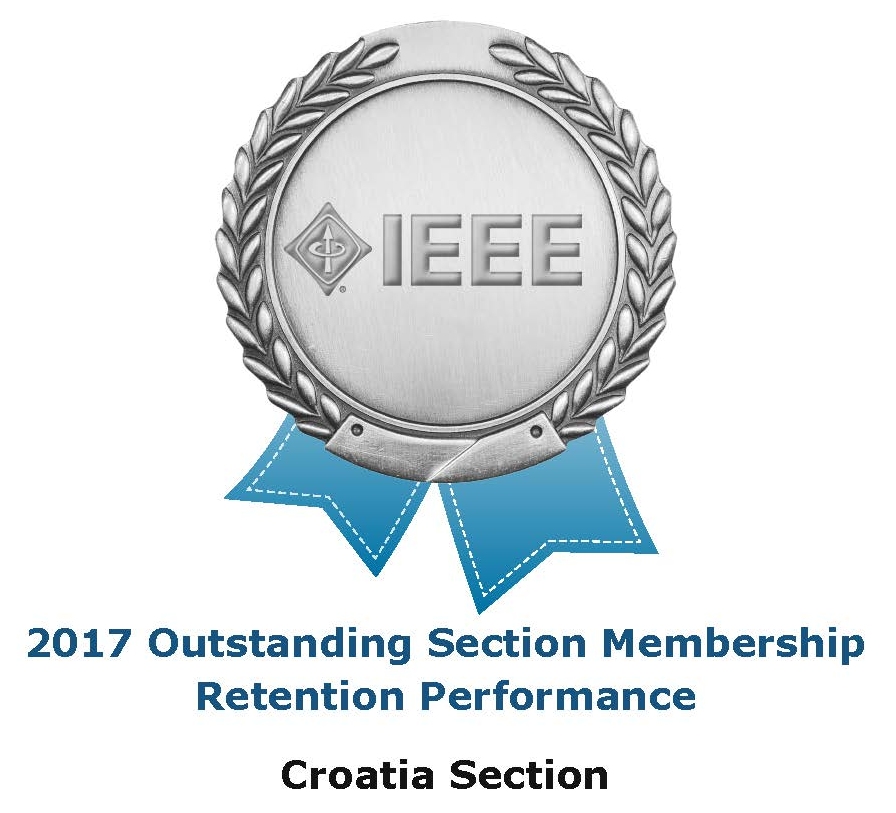Laboratorij za sustave obnovljivih izvora energije (LARES) u sklopu ZARI, Hrvatska sekcija IEEE i Odjel za upravljačke sustave pozivaju vas na niz predavanja u sklopu "International Workshop on Cooperative Control Systems" kao završne radionice projekta DECIDE i radionice projekata DODOLA i MLBatProt. Održat će se sljedeća pozvana predavanja:
- "Data-driven risk-aware coordination of boundedly rational agents", Filiberto Fele, University of Seville, Španjolska
- "Detecting cyber attacks in cyber-physical systems", Alexander J. Gallo, Politecnico di Milano, Italija
- "Some applications of control theory to lithium-ion batteries", Ross Drummond, University of Sheffield, UK
- "Distributed power system coordination via parametric optimization and ADMM", Branimir Novoselnik, FER
Uz njih će se održati i veći broj predavanja istraživača na temu postignutih rezultata projekata:
- DECIDE - Distribuirano upravljanje za dinamičko gospodarenje energijom u složenim sustavima naprednih gradova, voditelj Vinko Lešić, HRZZ UIP, https://www.fer.unizg.hr/decide
- DODOLA - Istraživanje prediktivnog upravljanja za učinkovit i fleksibilan rad vodoopskrbnog sustava, voditelj Mario Vašak, NPOO (CZI)
- MLBatProt - Model starenja baterijskog članka zasnovan na strojnom učenju korišten u računalnoj geometriji za on-line zaštitu integriteta baterijskog paketa, voditelj Mario Vašak, NPOO (CZI)
Radionica će se održati u srijedu 17. rujna 2025. godine u vremenu 9:00 -16:15 sati u Sivoj vijećnici Sveučilišta u Zagrebu Fakulteta elektrotehnike i računarstva, Unska 3, Zagreb.
Predavanja su otvorena za sve zainteresirane, a održat će se na engleskom jeziku.
Agenda radionice, sažeci predavanja i životopisi predavača dostupni su u detaljnom prikazu obavijesti.
Full agenda available here.
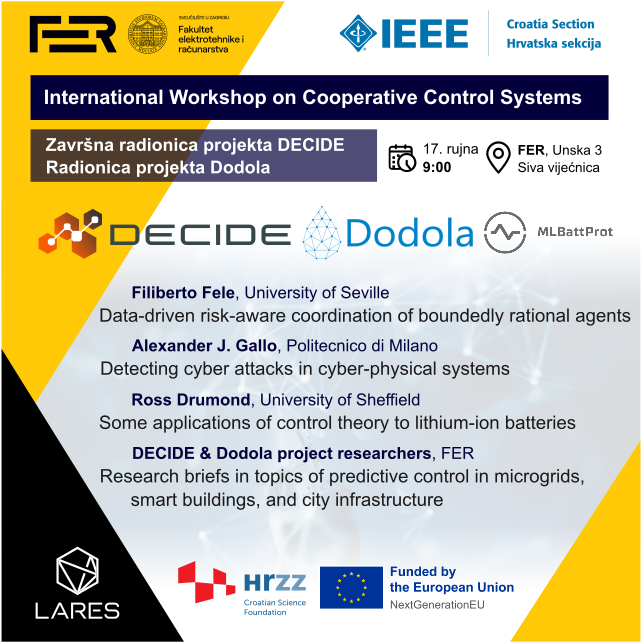
Data-driven risk-aware coordination of boundedly rational agents
This talk addresses robustness in noncooperative games under a learning theoretic lens. We will see how to a priori certify (in a probabilistic sense) the robustness of Nash equilibria, when uncertain constraints are inferred from data and agents' decisions can deviate from the nominal solution. Through an ad-hoc incentive scheme, we induce some nominal equilibrium for which a prespecified probabilistic feasibility holds for an entire region of admissible strategic deviations. Finally - for games admitting a potential function whose minimum coincides with the optimal social welfare - we show that our results afford a trade-off between guaranteed robustness and system-level efficiency.
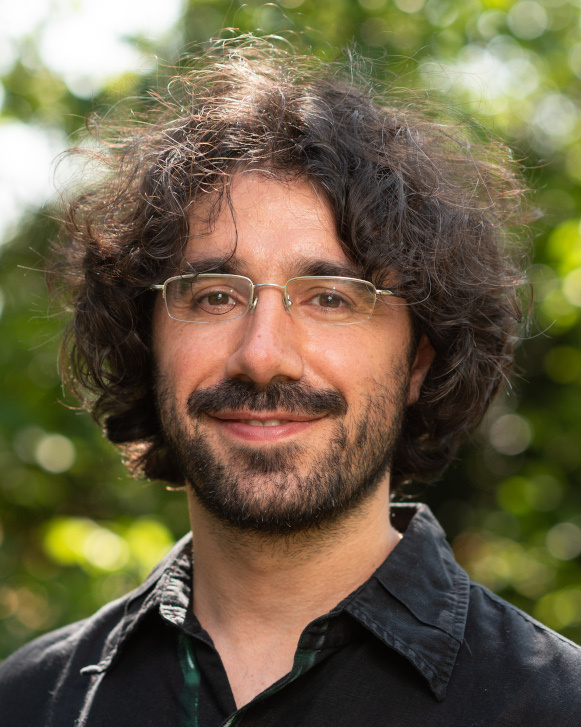 Dr. Filiberto Fele is Ramón y Cajal Research Fellow with the Dept. of Systems Engineering and Automation, University of Seville. His research sits at the intersection of control engineering, game theory and machine learning, focussing on the development of data-driven tools for the efficient and reliable decision-making in multi-agent settings. From 2017 to 2022 he held appointments at Imperial College London and University of Oxford. He took part in international demonstrator projects for smart infrastructures and low-carbon networks. His latest research received the IFAC Young Author Award at the 2025 IFAC Workshop on Smart Energy Systems for Efficient and Sustainable Smart Grids and Smart Cities.
Dr. Filiberto Fele is Ramón y Cajal Research Fellow with the Dept. of Systems Engineering and Automation, University of Seville. His research sits at the intersection of control engineering, game theory and machine learning, focussing on the development of data-driven tools for the efficient and reliable decision-making in multi-agent settings. From 2017 to 2022 he held appointments at Imperial College London and University of Oxford. He took part in international demonstrator projects for smart infrastructures and low-carbon networks. His latest research received the IFAC Young Author Award at the 2025 IFAC Workshop on Smart Energy Systems for Efficient and Sustainable Smart Grids and Smart Cities.
Detecting cyber attacks in cyber-physical systems
Recent years have seen the onset of cyber threats against a number of cyber-physical systems, including safety-critical infrastructure, such as power distribution grids and water networks. Secure control has arisen as a counterpart to traditional IT security as a means to diagnose the presence of cyber attacks, as well as to accommodate their effects. In this talk, I will start by addressing the problem of cyber-attack detection in cyber-physical systems, highlighting known structural properties which must hold for attacks to remain undetectable. I will then show how in large-scale systems locally secure information can be leveraged to ensure attacks remain detectable, and how this information can be further exploited to reconstruct secure local state estimates. Finally, I will show how active techniques can be used to thwart these structural conditions, by altering the system's behavior compared to the attacker's internal model.
 Alexander J Gallo received the M.Eng. and his Ph.D. degree in Control Engineering from Imperial College London, London, UK, in 2016 and 2021. From 2021 to 2024 he was a postdoctoral researcher at the Delft Center for Systems and Control, Delft University of Technology, Delft, the Netherlands. Since Sep 2024, he is a postdoctoral researcher at the Politecnico di Milano, Milan, Italy. His main research interests include distributed cyber-security and fault tolerant control for large-scale interconnected systems, with a particular focus on energy distribution networks, as well as health-aware and fault tolerant control of wind turbines. More recently, he has been working on providing guarantees to data-driven decision and control problems with the scenario approach.
Alexander J Gallo received the M.Eng. and his Ph.D. degree in Control Engineering from Imperial College London, London, UK, in 2016 and 2021. From 2021 to 2024 he was a postdoctoral researcher at the Delft Center for Systems and Control, Delft University of Technology, Delft, the Netherlands. Since Sep 2024, he is a postdoctoral researcher at the Politecnico di Milano, Milan, Italy. His main research interests include distributed cyber-security and fault tolerant control for large-scale interconnected systems, with a particular focus on energy distribution networks, as well as health-aware and fault tolerant control of wind turbines. More recently, he has been working on providing guarantees to data-driven decision and control problems with the scenario approach.
Some applications of control theory to lithium-ion batteries
As lithium-ion battery technology matures and performance demands increase, there is growing push to innovate at the "systems-level" rather than waiting for the discovery of new materials (as that is both expensive and hard to scale). Meeting these systems-level demands will require the application of new ideas from control theory and mathematical modelling to batteries. In this talk, I will discuss three problems that I have been working on in this area: i) battery pack modelling, ii) fast charging optimisation, and iii) cell-level design. The goal is to demonstrate both how these problems can lead to better batteries, but also how they can motivate theoretical problems. In particular, on consensus of differential-algebraic-equations, the optimality of bang-ride control, and scalable performance bounds for monotone systems.
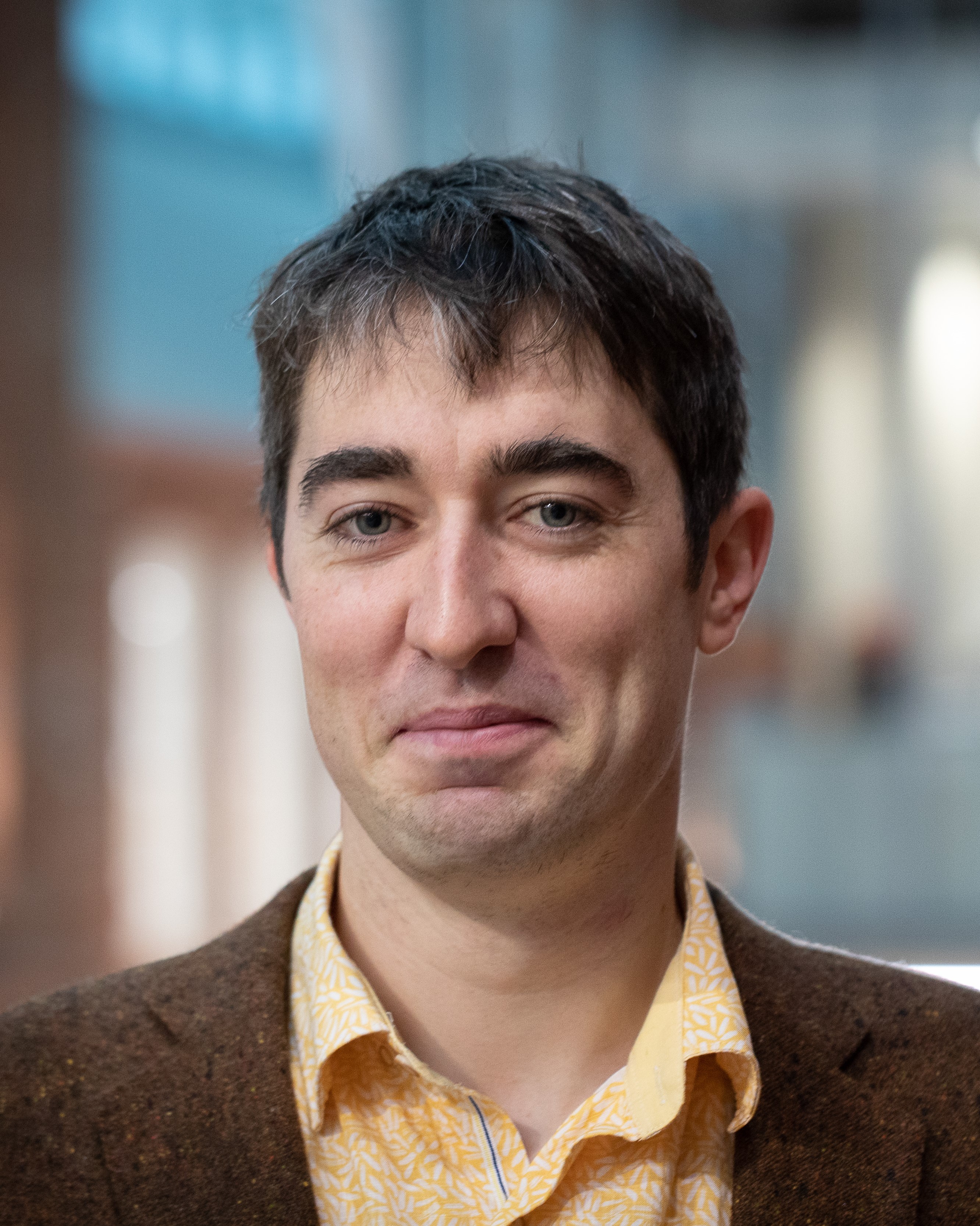 Ross Drummond is a Lecturer in the School of Electrical and Electronic Engineering at the University of Sheffield. Previously, he was a Royal Academy of Engineering UK IC Postdoctoral Research Fellow at the University of Sheffield (2019-2022) on the topic of “High energy density battery pack design without compromising on safety” in collaboration with HMGCC. He received his D.Phil degree in control engineering from the University of Oxford in 2017. His main research interests are on mathematical modelling and control of lithium-ion batteries with particular emphasis on pack-level algorithms, battery safety, and electrochemical modelling of layered electrodes.
Ross Drummond is a Lecturer in the School of Electrical and Electronic Engineering at the University of Sheffield. Previously, he was a Royal Academy of Engineering UK IC Postdoctoral Research Fellow at the University of Sheffield (2019-2022) on the topic of “High energy density battery pack design without compromising on safety” in collaboration with HMGCC. He received his D.Phil degree in control engineering from the University of Oxford in 2017. His main research interests are on mathematical modelling and control of lithium-ion batteries with particular emphasis on pack-level algorithms, battery safety, and electrochemical modelling of layered electrodes.
Distributed power system coordination via parametric optimization and ADMM
The talk will present an efficient model predictive control algorithm for distributed coordination of an electrical power system comprising many spatially distributed controllable units. The coordination problem is formulated using parametric solutions of local optimization problems corresponding to individual subsystems leading to favorable problem structure which can be split across all subsystems and nodes in the network. The structure of the obtained coordination problem is exploited to develop a very efficient solution algorithm based on an ADMM technique. The key features of the overall approach are: (i) private data of individual subsystems are protected, (ii) simple and efficient on-line computations, (iii) parallelization of computation across all subsystems and all nodes in the network. Efficiency of the proposed control strategy is demonstrated on a number of numerical case studies of varying size.
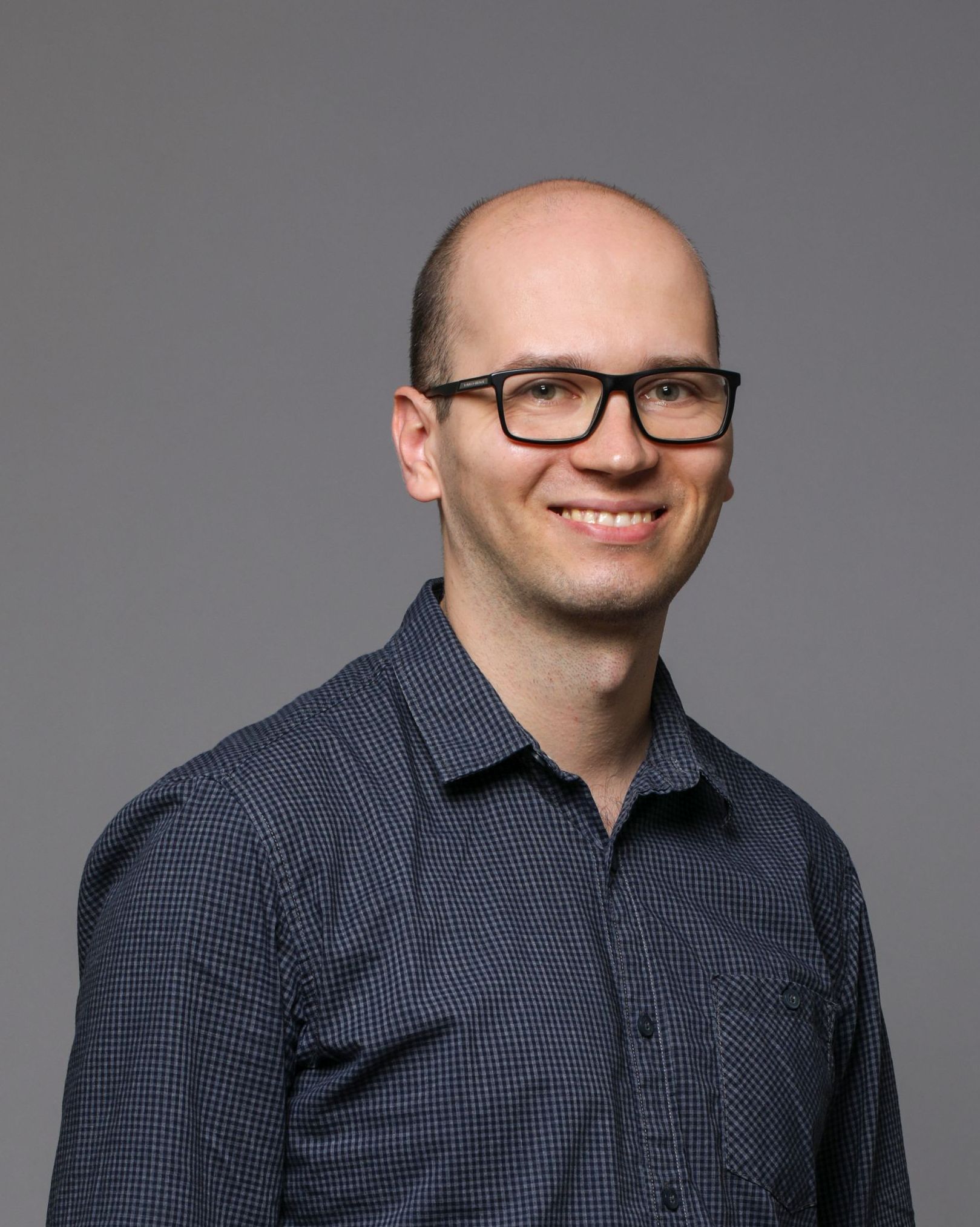
Branimir Novoselnik received the M.Sc. and Ph.D. degrees, both in electrical engineering, from the Faculty of Electrical Engineering and Computing (UNIZG-FER), University of Zagreb, Zagreb, Croatia, in 2013 and 2018, respectively. He is currently an Associate Professor at the Department of Control and Computer Engineering, UNIZG-FER, Croatia. His research interests include optimal control, mathematical programming, and model predictive control.
DECIDE project, applications, control algorithms and datasets in smart buildings and microgrids
In buildings, the world largest consumers, ICT is a fruitful area for integration of different technologies aimed to increase the energy efficiency, i.e. to achieve zero-energy buildings. High-tech equipment and highly expert staff are required, together with long-running modelling and consumption forecast procedures, which is the highest economic barrier for implementation of the new technologies, with return of unacceptable investment prognoses of above 10 years. By integration with renewable sources and microgrids, the buildings are becoming capable of active participation in the distributed energy market as energy-independent units, which finally enables the trend of smart cities. The proposed methodology, aimed to be developed within the DECIDE project, uses two basic approaches: distributed optimal control among subunits of the same subsystem and hierarchical optimal control between different levels (subsystems). Distributed control implies the game theory application and mutual bidding of individual (local) interests of the subunits of a complex system. The methodology in the proposed DECIDE project starts with joining of these several approaches and aims at utilization of advantages of each the approach, and also incorporate the acquired experience of the research group in their research work so far related to building and transport subsystems. Bases for the proposed methodology are set in preceding research collaboration with national and international scientific partners who will have advisory roles in the project. Some of them are the original initiators of the theories that will further be investigated in the project, while international available knowledge will be transferred to the newly established research group, forming foundations for further theoretical but also practical research.
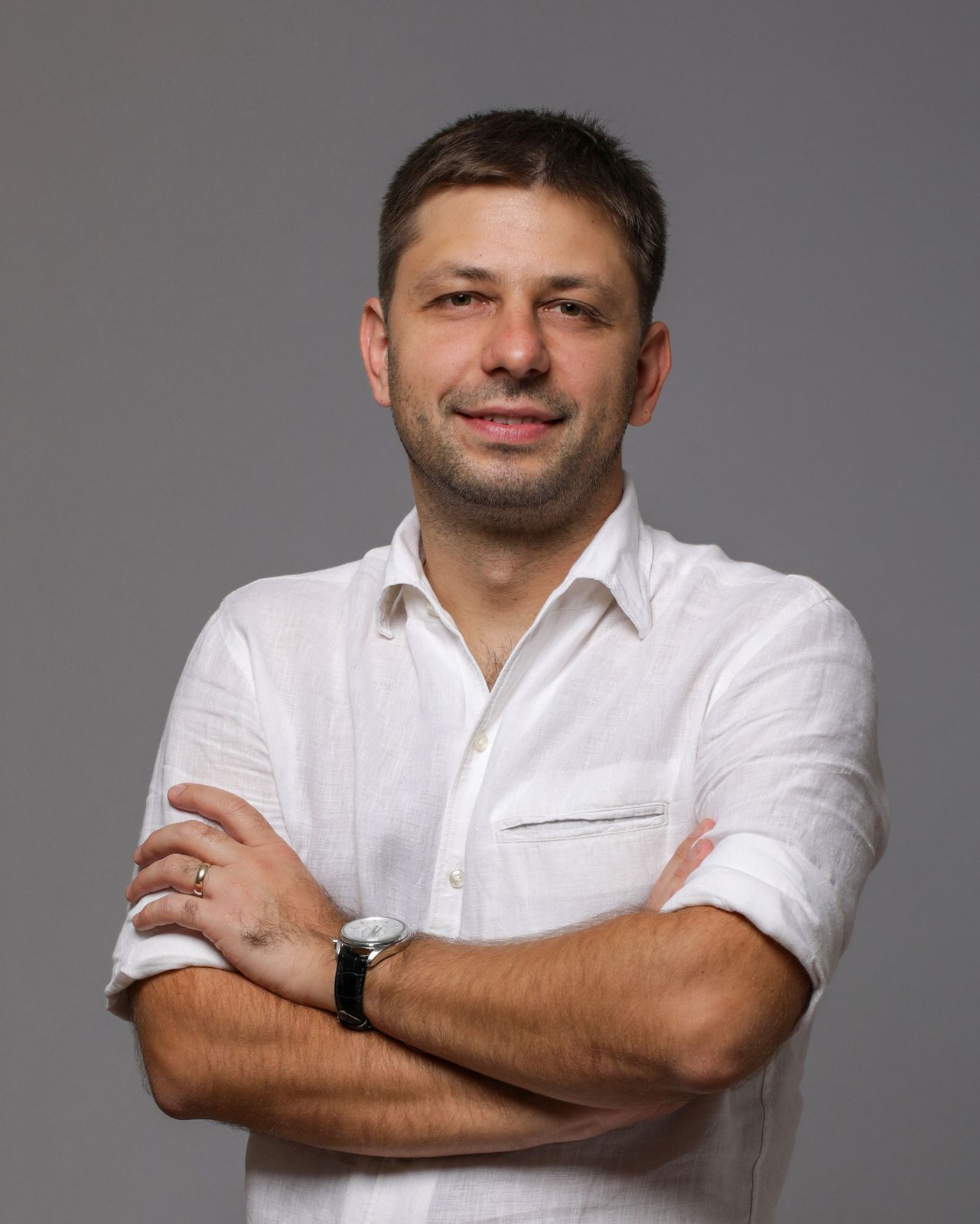 Vinko Lešić received his PhD degree in 2014 from University of Zagreb Faculty of Electrical Engineering and Computing, Zagreb, Croatia (UNIZG-FER). Today, he is an Associate Professor within Laboratory for Renewable Energy Systems (LARES - https://www.lares.fer.hr) at the Department of Control and Computer Engineering of UNIZG-FER. He was a PI of 8 scientific-research and development and 4 technology transfer projects, and led a research group of 20 scientists. His research focus is on control algorithms, optimisation and artificial intelligence in renewable energy and sustainability topics or more particularly convex optimisation and machine learning methods for buildings and transport energy efficiency, and microgrid operation.
Vinko Lešić received his PhD degree in 2014 from University of Zagreb Faculty of Electrical Engineering and Computing, Zagreb, Croatia (UNIZG-FER). Today, he is an Associate Professor within Laboratory for Renewable Energy Systems (LARES - https://www.lares.fer.hr) at the Department of Control and Computer Engineering of UNIZG-FER. He was a PI of 8 scientific-research and development and 4 technology transfer projects, and led a research group of 20 scientists. His research focus is on control algorithms, optimisation and artificial intelligence in renewable energy and sustainability topics or more particularly convex optimisation and machine learning methods for buildings and transport energy efficiency, and microgrid operation.
Machine learning in climate-driven sectors
It is evident that extreme weather events are becoming increasingly frequent and of increased impact, resulting in a growing need for more accurate real-time updated weather prediction where short term weather forecasting (nowcasting) is gaining critical importance. Furthermore, climate drives energy production and consumption, and users behaviour in general. As such, it impacts sectors of buildings, transport, energy and more. The talk will focus on how to tailor weather forecasts to be further used as disturbances in control algorithms. A broad overview of the approaches in curation of datasets, machine learning (ML) models and end-use cases is established and compared through organization of an international hackathon “AI in Enhanced Weather Forecasting”, with the next stage now supported by international associations and competition platforms. The results showed the possibility of notable improvements in particular weather variables, such as air temperature or relative humidity, and challenges in others, such as precipitation. The approach is tested on six variables in three biomes as case studies in Europe, Middle East and Africa. These learnings and experiences are the steering premises of the proposed area of research, aimed to enhance international capacity of AI in meteorological services, in the context of international collaboration, initiatives and knowledge exchange. The focus is the downscaling of short-term numerical weather forecasts to hyper- and sub-local areas based and enable utilization of multimodal data.
 Hrvoje Novak received the Ph.D. degree from the University of Zagreb, Faculty of Electrical Engineering and Computing, Zagreb, Croatia, in 2019. Currently, he is a Lead Researcher with the Department of Control and Computer Engineering and a member of the Laboratory for Renewable Energy Systems. He has coauthored over 30 scientific and professional articles in the field of smart transport, buildings, water distribution, and agriculture. His research interests include the domain of predictive control and machine learning algorithms with applications in climate-driven technical systems.
Hrvoje Novak received the Ph.D. degree from the University of Zagreb, Faculty of Electrical Engineering and Computing, Zagreb, Croatia, in 2019. Currently, he is a Lead Researcher with the Department of Control and Computer Engineering and a member of the Laboratory for Renewable Energy Systems. He has coauthored over 30 scientific and professional articles in the field of smart transport, buildings, water distribution, and agriculture. His research interests include the domain of predictive control and machine learning algorithms with applications in climate-driven technical systems.
Predictive control and coordination of a drinking water treatment plant and the water distribution system
This topic addresses the modelling and optimisation of drinking water treatment plants (DWTPs) and water distribution systems (WDSs). A general reaction volume concept is introduced for DWTPs, allowing plant-wide modelling by stacking several such volumes with corresponding chemical inputs. A grey-box model is obtained, characterized by a small number of tuneable parameters, tailored to specific DWTPs using actual parameter values. The operation of the plant is optimized using sequential linear programming (SLP) over a full-day horizon, with cost functions and constraints explicitly defined. The method is validated using real data from a DWTP in Spain, demonstrating significant cost reductions compared to traditional operation while rigorously meeting drinking water quality requirements. For WDSs, a method for the linearization of general network configurations is presented, and the required SLP formulation is derived. The optimization procedure is applied to a toy example and a large WDS segment from Spain, where improved performance and reduced operational costs are observed when compared to hysteresis-based control. Finally, a coordination algorithm is developed for the joint operation of the DWTP and WDS under unilateral interaction. The proposed approach demonstrates that coordinated operation of these two entities leads to a significant reduction in total operating costs compared to their independent management. The results highlight how the efficiency and sustainability of water supply systems can be enhanced through integrated modelling and optimization.
 Blaž Korotaj was born in 1996 in Varaždin. He enrolled in the undergraduate study program in Geophysics at the University of Zagreb Faculty of Science in 2015 and completed it in 2018. That same year, he began his graduate studies at the Faculty of Electrical Engineering and Computing (UNIZG-FER), and in 2020 completed the Automation profile under the supervision of Professor Mato Baotić, Ph.D. Since October 2020, he has been employed as an HRZZ research assistant on the European research project REWAISE. Within the project, he works on mathematical modelling of drinking water treatment plants, water distribution systems, and the development of optimal control procedures for such systems. Since October 2024, he has been employed as a researcher on the Dodola project.
Blaž Korotaj was born in 1996 in Varaždin. He enrolled in the undergraduate study program in Geophysics at the University of Zagreb Faculty of Science in 2015 and completed it in 2018. That same year, he began his graduate studies at the Faculty of Electrical Engineering and Computing (UNIZG-FER), and in 2020 completed the Automation profile under the supervision of Professor Mato Baotić, Ph.D. Since October 2020, he has been employed as an HRZZ research assistant on the European research project REWAISE. Within the project, he works on mathematical modelling of drinking water treatment plants, water distribution systems, and the development of optimal control procedures for such systems. Since October 2024, he has been employed as a researcher on the Dodola project.
Distributed model predictive control of hybrid energy storage system
This talk focuses on a distributed heterogeneous storage microgrid, which consists of variable efficiency batteries and latent thermal energy storage. The nonlinear efficiency of battery charging and discharging is determined using data from converter datasheets. A corresponding nonlinear problem for each battery is solved using sequential linear programming. The nonlinearity of thermal energy storage stems from the state transition properties of phase change material and is addressed through mixed integer programming. Distributed control is applied to adjust individual solutions of energy storage units and improve overall microgrid performance while adhering to the joint constraint of maximum grid power exchange capacity. It is based on asymmetric projection algorithm that utilizes the gradient of cost function to steer the solution towards the global optimum. Furthermore, it enhances data privacy and improves economic gain. The algorithm is implemented in a realistic simulation that incorporates actual load consumption data and real price profile. Presented results show that distributed control improves monetary profit by 1.20% and 5.12% compared to the constrained decentralized control and conventional transactive control, respectively and over 4× compared to the no storage case.
 Filip Vrbanc is a PhD student since 2020, employed as an HRZZ research assistant on the European research project Store4HUC -Integration and Smart Management of Energy Storages at Historical Urban Sites, led by Prof. Mario Vašak. Within the project, he worked on mathematical modeling of a latent thermal storage with phase change material and on the development of a control algorithm for a thermal system incorporating the mentioned storage. In January 2021, he began working as a researcher on the project DECIDE - Distributed Control for Dynamic Energy Management of Complex Systems in Smart Cities, led by Associate Prof. Vinko Lešić. His research interests lie in the domain of predictive distributed control of dynamic systems, with applications in building thermal systems and microgrids composed of various types of energy storage units.
Filip Vrbanc is a PhD student since 2020, employed as an HRZZ research assistant on the European research project Store4HUC -Integration and Smart Management of Energy Storages at Historical Urban Sites, led by Prof. Mario Vašak. Within the project, he worked on mathematical modeling of a latent thermal storage with phase change material and on the development of a control algorithm for a thermal system incorporating the mentioned storage. In January 2021, he began working as a researcher on the project DECIDE - Distributed Control for Dynamic Energy Management of Complex Systems in Smart Cities, led by Associate Prof. Vinko Lešić. His research interests lie in the domain of predictive distributed control of dynamic systems, with applications in building thermal systems and microgrids composed of various types of energy storage units.
Modular coordination of predictive vehicle routing and bin packing
Road freight and delivery transport is a major economic driver and, accounting for 23.6% of global energy consumption, a significant source of energy demand. Solving two main combinatorial optimization problems can achieve significant savings in this sector: the Vehicle Routing Problem (VRP) and the Bin Packing Problem (BPP). Although these problems are widely investigated in the literature, they are often highly simplified compared to realistic scenarios: only 4% of papers consider traffic congestion, 3% time horizon, and 6% address VRP and BPP jointly. A combination of multiple real-world constraints is typically solved only by commercial solvers, which may also fail on more complex instances. The presentation describes algorithms developed in LARES that coordinately solve VRP and BPP, incorporating congestion, time horizons, and several other practical constraints. Given the extremely high computational complexity of the problem, the algorithms carefully balance intensification and diversification in the search process.
 Nikica Perić currently works as a leading researcher at the Faculty of Electrical Engineering and Computer Science in Zagreb. After graduating in Control Engineering and Automation in 2020, he started working at FER as a researcher on the "Collaborative, Elastic and Green Logistics" project. He is the author of 5 conference papers and 2 journal papers, mostly in the field of combinatorial optimization, in which he is completing his PhD on the topic "Modular coordination of predictive vehicle routing and bin packing". In addition to his academic career, he also worked in industry, mostly as a data scientist. His areas of interest are combinatorial optimization and data science.
Nikica Perić currently works as a leading researcher at the Faculty of Electrical Engineering and Computer Science in Zagreb. After graduating in Control Engineering and Automation in 2020, he started working at FER as a researcher on the "Collaborative, Elastic and Green Logistics" project. He is the author of 5 conference papers and 2 journal papers, mostly in the field of combinatorial optimization, in which he is completing his PhD on the topic "Modular coordination of predictive vehicle routing and bin packing". In addition to his academic career, he also worked in industry, mostly as a data scientist. His areas of interest are combinatorial optimization and data science.
Predictive Control of Building Zones Climate Based on Physics-informed Model Ensemble
Mihael's current research explores developing a thermodynamic building model using machine learning, and designing a predictive controller based on it. Traditional physical modelling is time-consuming and hard to scale, limiting commercial use. IoT sensors on one floor of the Faculty bulding collect climate data, which will be used with machine and deep learning to build a hybrid model that captures thermodynamics, external disturbances, and user behaviour. This model will power a predictive controller for optimal climate management, aiming for fast deployment and replication. The approach is expected to achieve energy efficiency similar to physical model-based predictive control, and much higher than current building controllers.
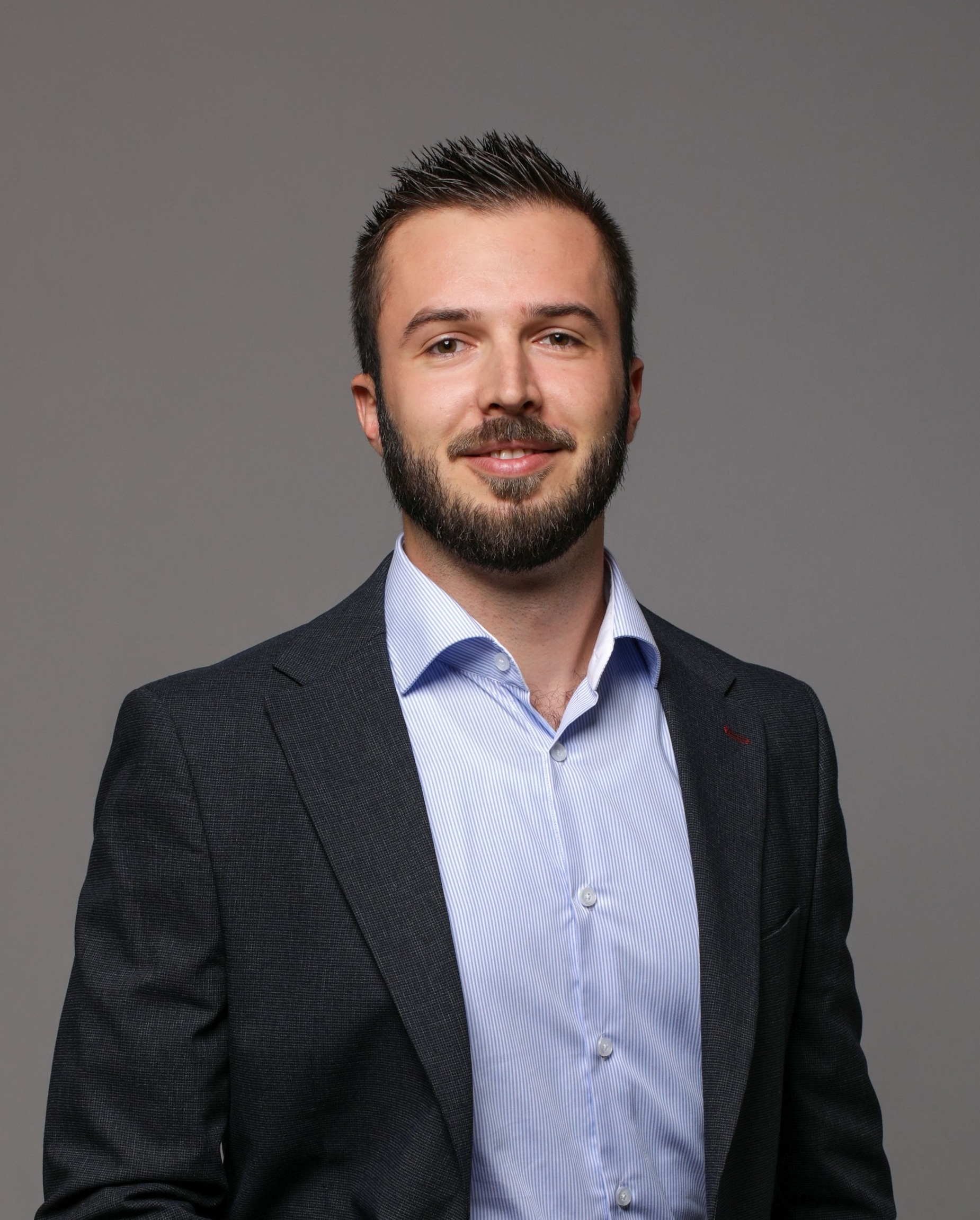 Mihael Jakšić holds a masters degree in computer science obtained at University of Zagreb Faculty of Electrical Engineering and Computing. He is currently employed as an assistant on DECIDE project and pursuing his PhD in electrical engineering. His research interest is combining machine learning and control systems with emphasis on physics-based machine learning.
Mihael Jakšić holds a masters degree in computer science obtained at University of Zagreb Faculty of Electrical Engineering and Computing. He is currently employed as an assistant on DECIDE project and pursuing his PhD in electrical engineering. His research interest is combining machine learning and control systems with emphasis on physics-based machine learning.
EnsembleSequential Linear Programming with Adaptive Linearization Error Limits for All-Time Feasibility
The talk will present an enhanced Trust Region Method (TRM) for Sequential Linear Programming (SLP) designed to improve the initial feasible solution to a constrained nonlinear programming problem while maintaining the interim solutions feasibility throughout the SLP iterations. The method employs a polytopic sub-approximation of the feasible region, defined around the interim solution as a level set based on variable limits for the linearization error. This polytopic feasible region is established by using a trust region that ensures that maximum limits of the linearization errors are respected. The method adaptively adjusts the size of the feasible region during iterations to achieve convergence to a local optimum by employing variable linearization error limits. Local convergence is attained by reducing the size of the trust radius. A case study illustrates the effectiveness of the proposed method, which is compared to the benchmark TRM that uses heuristic limits on the permissible changes in manipulated variables.
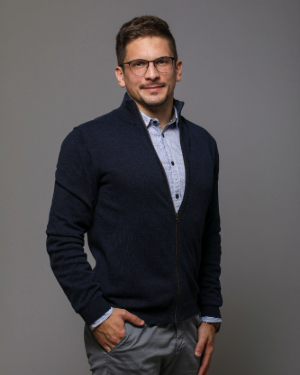 Dorijan Leko is a PhD candidate in the Department of Control and Computer Engineering at the University of Zagreb Faculty of Electrical Engineering and Computing. He is a member of the Laboratory for Renewable Energy Systems, where he serves as a research associate on the MLBattProt project. This project focuses on developing a machine learning-based model for battery cell aging, utilizing computational geometry for online battery pack health protection. His primary research interests lie in control theory, optimization techniques, and protective methodologies for control systems.
Dorijan Leko is a PhD candidate in the Department of Control and Computer Engineering at the University of Zagreb Faculty of Electrical Engineering and Computing. He is a member of the Laboratory for Renewable Energy Systems, where he serves as a research associate on the MLBattProt project. This project focuses on developing a machine learning-based model for battery cell aging, utilizing computational geometry for online battery pack health protection. His primary research interests lie in control theory, optimization techniques, and protective methodologies for control systems.




